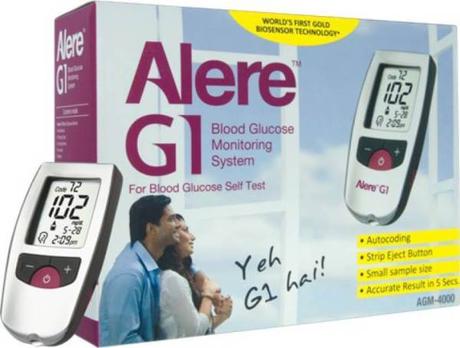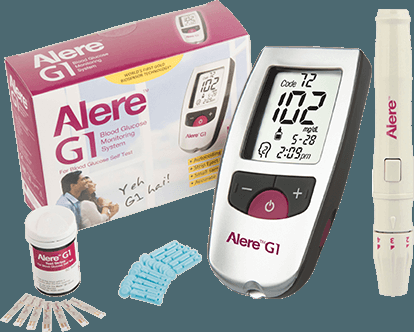November 17, 2016 Leave a Comment
“People with high blood pressure, diabetes – those are conditions brought about by life style. If you change the life style, those conditions will leave.” – Dick Gregory
November 14 is observed as World Diabetes Day every year, ever since the day was first created in 1991 by the International Diabetes Federation. The day is also an official UN day, and with the rising incidence of diabetes cases around the world, the significance of this day has also increased.

The fact that diabetes has been rising steadily isn’t just speculation, it’s a fact! A quick look at some numbers will help us realize the grim reality of the time we’re living in.
Facts about Diabetes
- India has approximately 40 million people with diabetes, but by 2030 this number is expected to increase to almost 80 million, meaning every fifth diabetic in the world would be an Indian.
- In 2007, India topped the list of diabetic countries.
- 7 million Indians develop diabetes every year.
- In 2008, 1.3 million people died due to diabetes, and the number is expected to increase by 35% in next ten years.
Theoretically speaking, diabetes is a disease that directly affects the pancreas, but the truth is that once a patient is diagnosed with diabetes, nearly all other organs of his body are likely to be affected. Diabetes is the number one cause of kidney failure in the world and also causes 5% or 5 million blindness in adults and one million limb amputations. In fact, every week, diabetes leads to 140 lower limb amputations, 1400 cases of heart failure and over 540 strokes. The worst part is that diabetes is a ‘silent killer’ – there aren’t any prominent symptoms of the disease initially. However, there are some risk factors that can make certain people predisposed to the disease.
Risk Factors for Diabetes
- Age – 90 to 95% of diabetes occurs in people in middle age, around 4o years.
- BMI – Being overweight
- Ethnicity – Asians are more prone to diabetes than others
- Sedentary lifestyle
- High levels of LDL cholesterol
- Family history
Knowing your risk factors gives you valuable information about whether you’re likely to get diabetes in your lifetime. However, just having positive risk factors for diabetes doesn’t mean that you are doomed to suffer from diabetes. The first line of defense is definitely constant monitoring of blood sugar. If you’re not yet diabetic, the monitoring will help you keep your blood sugar well below pre-diabetic levels and if you’re already diabetic, you can make sure that your diabetes is being managed well. You can check if your current lifestyle and medication is working or if you need to consult your doctor.
Measuring your blood sugar requires a blood test, and this may be have to be taken on an empty stomach, first thing in the morning. Under such circumstances, it can be inconvenient to go to a hospital or blood lab every time you need to check your blood sugar. This is why having a glucometer at home comes in very handy – you can check your own blood sugar from the comfort of your own home, whenever you need to. But before you set out to buy one, it’s important to ensure you get the right one for yourself.
5 Things to Consider when Buying a Glucometer
- Accuracy – This is the most important factor to consider; after all, you need your results to be accurate!
- Hygiene – Since this device is going to be piercing your skin, it needs to maintain utmost hygiene
- Speed – Your results should be visible within seconds of the test
- User friendliness – Your device should be easy to understand and use, without unnecessary settings
- Convenience – You might want to take the glucometer everywhere, so it needs to be travel friendly and convenient

Choose the Right Glucometer for Yourself
One of the best glucometers available today that meets all the above criteria is the ALERE G1 blood glucose monitor. This brand uses 99.9% pure Gold electrodes in its test strips, providing very accurate results. Gold is the best conductor of electricity. Therefore, the use of this metal helps Alere G1 provided superior accuracy. One of the unique features included in this home glucose test device is an automatic strip ejector button. It eliminates the manual disposal of used test strips and therefore, ensures better hygiene and helps to contain chances of infections. All you need for a test is just 0.5 µL of blood, a very small blood sample size! What’s more it is fast in processing the sample as test result is obtained in just 5 seconds.
This glucometer has the widest measuring range: from 10 – 900 mg/dL. Importantly, Alere G1 is also auto-coded, which means no more hassles of using a code chip. With Alere G1, you can be sure of accurate test results every time you test. As if this wasn’t enough, Alere G1 is packed with features such as 500 test memory, an alarm facility to remind you to test. It also has another unique feature – profile management! This feature allows 5 different users to use the same glucometer and recall independent results for each user.

A healthy lifestyle of nutrition, exercise and rest, coupled with constant monitoring of your blood sugar should work well to help you keep diabetes at bay. When you check your blood sugar regularly, you can be assured that you are on the right track and are working to prevent other serious complications. As Dale Evans said, “Life is not over because you have diabetes. Make the most of what you have, be grateful.” And take the best possible care of yourself as you can!
+1 Tweet Share PinShares 0Health, Sponsored Posts health, healthy, Sponsored
